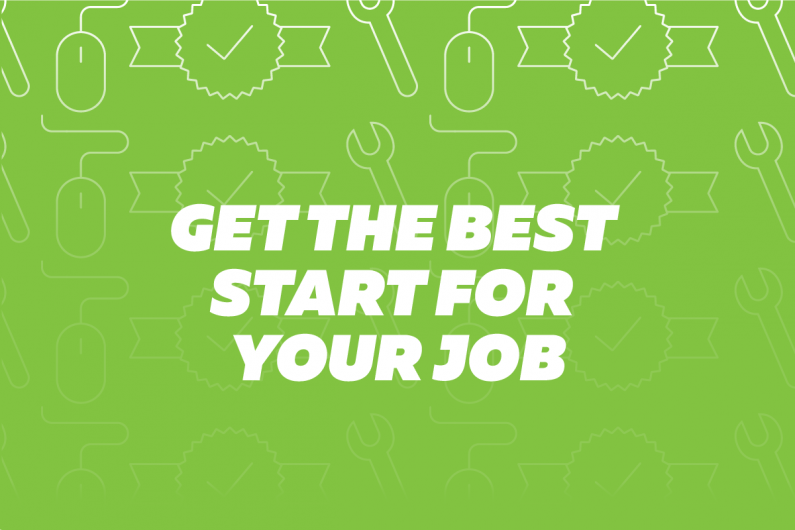Get the best start for your job

Find out what to do before you start work, and in your first days in your new role.
What's on this page?
Accepted a job offer? Congratulations. Here’s how to prepare for your first day and weeks at work.
Find out the details of your new job
Your employment agreement should list your work hours, pay rate, and what tasks you will do. Also find out:
- the date and time your employer expects you to start
- where your workplace is – it may not be where your interview was
- the dress code and whether you need to bring any special clothes, footwear or tools
- whether a uniform is required, and if so where you get it and who’s responsible for cleaning it
- if parking is provided.
- Job offers and employment agreements
Prepare for your first day at work
You may need to:
- decide how you’ll get to work and find out how long it will take
- make arrangements for childcare, or care of others you are responsible for
- make sure you have particular clothes, footwear and tools.
You may also need to find accommodation.
- School Leaver's Toolkit website - find out about different types of accommodation
- Work and Income website - help with costs of starting your new job
- Work and Income website - information about clothing and other support for women
- Work and Income website - information about clothing and other support for men
Sort out your money
If this is your first job you may need to:
- set up a bank account
- get an Inland Revenue Department (IRD) number (for your tax)
- set up a KiwiSaver account
- find out how to make and use a budget.
- Inland Revenue website - how to apply for an IRD number
- KiwiSaver website - information about KiwiSaver retirement savings
- Sorted website - help with budgets, Kiwisaver, borrowing and saving
- Work and Income website - help with work costs
Your first weeks at work – what your employer is looking for
You don’t necessarily need to know how to do all the tasks in your job description when you start work. If you're starting work as an apprentice, your employer will train you.
However, most employers want staff who:
- ask if they’re not sure how to do something
- are friendly and willing to work as part of a team
- keep themselves safe at work
- are problem-solvers and able to show initiative.
- Skills employers are looking for
- Victoria University of Wellington website - employers’ wish list of graduate skills
Apprentice video: learning on the job
Troy Jones talks his training and how he learned to read plans during his drainlayer apprenticeship – 2.22 mins
Hi, my name is Troy and I'm a drainlayer.
My key responsibilities as a drainlayer are to make sure my drains comply with codes and regulations.
Understand your employment agreement and your rights at work
Employment New Zealand's website has information about:
- your rights at work
- employment agreements
- work hours and working arrangements
- annual leave and other leave
- pay
- how to resolve work problems.
Updated 3 Mar 2025